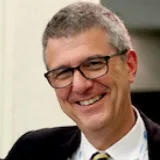Please note: this event has passed
The Physiological Oxygen Laboratory will be hosting a Pharma / Industry-focused workshop with overview lectures on the importance screening therapeutics in cell models under physiological oxygen levels followed by laboratory demonstrations of oxygen regulated workstations, imaging equipment and atmosphere controlled plate reader.
Workshop Programme
10:00 – 10:15 Arrival and Registration
10:15 – 11:00 Welcome and Introductory Lecture – Prof Giovanni Mann
School of Cardiovascular and Metabolic Medicine & Sciences, KCL
Defining Physiological Normoxia in Cell Physiology for Improved Clinical Translation
11:00 – 11:30 Dr Krista Rantanen, Director of Scientific Applications, Baker-Ruskinn and Dr Joose Kreutzer, Founder and CEO, BioGenium Microsystems
Oxygenie: an innovative, portable O2-regulated ‘incubator’ enabling cell imaging
11:30 – 12:00 Oliver Carney & Catherine Wark, Technical Applications Specialists, BMG Labtech
Cellular Oxygenation and Metabolism in vitro Using O2 Regulated Plate Readers
12:00 – 12:30 Dr Walker Inman, Founder and CEO, Lucid Scientific
Real Time Monitoring of Cellular Oxygen Consumption Using the Resipher
12:30 – 13:15 Prof Mauro Giacca Head, School of Cardiovascular and Metabolic Medicine & Sciences, KCL
Keynote Lecture - Functional Screenings For New Cardiac Biologics
13.15 – 14.00 Lunch Break
14:00 – 16:00 Physiological Oxygen Laboratory Demonstration – Room 3.26
SCI-tive and InvivO2 workstations (Baker-Ruskinn), Oxygenie (BioGenium), ClarioStar plate reader (BMG Labtech), Evos Microscope (ThermoFisher), Resipher (Lucid Scientific) and Human Cells (Caltag Medsystems)
Dr Matthew Smith & Fan Yang (King’s College London), Dr Krista Rantanen (Baker Ruskinn), Dr Joose Kreutzer (University of Tampere), Oliver Carney & Catherine Wark (BMG Labtech), Dr Walker Inman (Lucid Scientific), Fraser Holleywood (ThermoFisher), Jay Champaneri (Labtech) and Andrew Woods (Caltag Medsystems)

The extensive oxygen gradient between the air we breathe (PO2 ~21kPa) and its ultimate distribution within tissues, cells and mitochondria (as low as ~0.5 - 1 kPa) is testament to the efforts expended in limiting its inherent toxicity. It has been long been recognised that cell culture undertaken under room air conditions falls short of replicating this protection in vitro. Despite this, difficulty in accurately determining the appropriate O2 levels in which to culture cells, coupled with a lack of the technology to replicate and maintain a physiological O2 environment in vitro, has hindered addressing this issue thus far.
This Pharma / Industry Physiological Oxygen Workshop, focused on the importance of physiological oxygen levels in screening of therapeutics in model cell systems, aims to review the current understanding if tissue O2 distribution in vivo and the attempts made to replicate these conditions in vitro. State-of-the-art techniques employed to accurately determine O2 levels, as well as the issues associated with reproducing physiological O2 levels in vitro will be discussed. Overview talks will be followed by hands-on demonstrations in our Physiological Oxygen Laboratory in the King's BHF Centre of Research Excellence.
By providing a framework for researchers to undertake cell culture under O2 levels relevant to specific tissues and organs, we aim to enable the translation of findings obtained under physiological conditions in vitro to disease pathology and to inform the design and high throughput screening of novel therapeutics.
Supported in-kind by Baker-Ruskinn, BMG Labtech, Thermo Fisher Scientific, Lucid Scientific, BioGenium Microsystems and Caltag Medsystems.

Thomas P Keeley and Giovanni E Mann (2019) Defining Physiological Normoxia for Improved Translation of Cell Physiology to Animal Models and Humans. Physiological Reviews 99:161-234.
Helmut Sies, Vsevolod V. Belousov, Navdeep S. Chandel, Michael J. Davies, Dean P. Jones, Giovanni E. Mann, Michael P. Murphy, Masayuki Yamamoto & Christine Winterbourn (2022) Defining roles of specific reactive oxygen species (ROS) in cell biology and physiology Nat Rev Mol Cell Biol. 2022; 23:499-515.
Event details
Franklin-Wilkins Building
150 Stamford Street London, SE1 9NH


